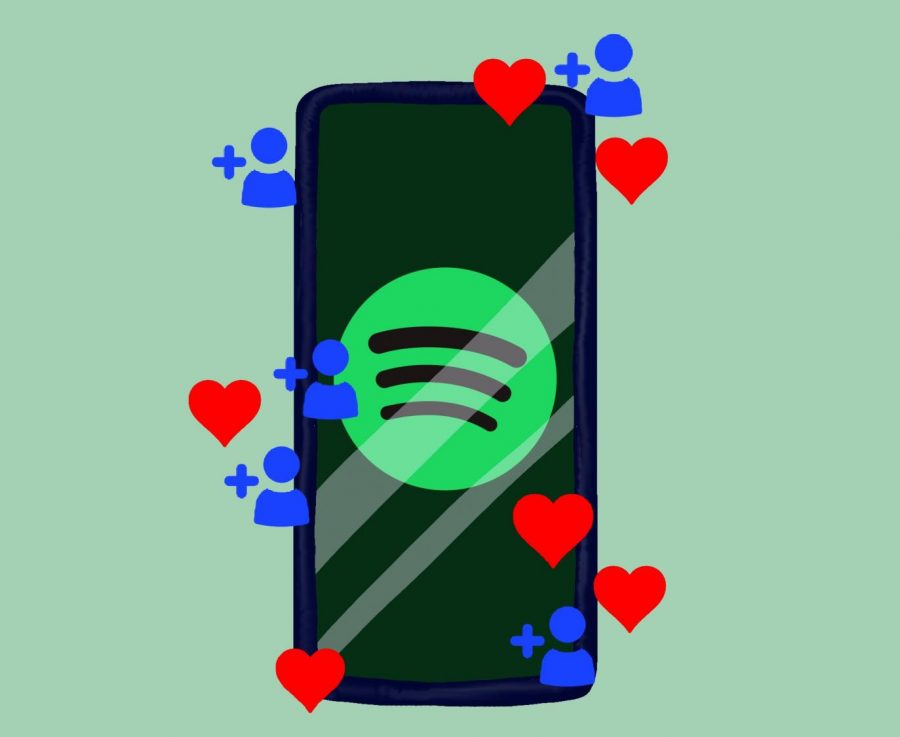The Social-Media-fication of Spotify
Spotify, the music streaming app, has been moving toward becoming more like social media, trying to make itself more addictive. This, though, could be damaging to its users’ mental health.
December 5, 2021
With music anywhere from the likes of Donda to Red (Taylor’s Version), Spotify has capitalized on building a monopoly on the modern-day auditory experience. The company, which boasts over 365 million monthly listeners as of 2020, is a giant in the realm of music. While Spotify may merely be considered an app which provides users with easy access to music and podcasts, the company has evolved into a social media platform, addicting its users and, in some cases, undermining their mental health.
The integration of features associated with platforms like Instagram and TikTok is a part of the addictive and harmful business models that allow for the success of social media. According to Healthline, using social media apps can trigger rushes of dopamine, signaling to your brain that this activity is one to be repeated for future boosts. This lends itself to an endless cycle of the brain trying to replenish dopamine levels, which fosters an addictive relationship between the user and the social media. This, of course, benefits the app as they gain more reoccurring users.
The catch is what lies within social media: alarming news, perfectly curated lives, misinformation, and many other potential harms. The goal to boost dopamine is then left unfulfilled, and users often feel worse than before due to this negativity and social comparison. A California State University study determined that “individuals that visited any social media site at least 58 times per week were 3 times more likely to feel socially isolated and depressed compared to those who used social media fewer than 9 times per week” (Addiction Center). This echoes the research showing that social platforms designed as modes of interaction ironically often make users feel more alone.
Spotify, and many social media companies, take advantage of this self-destructive facet of human nature by adopting features that emphasize connection, maximizing consumers returning to their app. Spotify users have personalized profiles with the ability to follow others and see what they’re listening to in real-time, view user-made playlists, and even publish playlists of their own. Features such as the ability to “like” and “follow” people and playlists may seem like enjoyable elements of the experience which allow users to connect, but in reality, they feed into what makes social media so addictive and isolating.
Recently, Spotify implemented a “Discover” feature into their app. The Discover page is an endless stream of songs users can swipe through to get a taste of artists they’ve likely never heard, allowing them to expand their music taste. This feature seems to be a replication of the app TikTok, a video-sharing platform which proves to be immensely popular among teens today. By increasing the extent to which Spotify is modeled after common social media platforms, the music streaming platform capitalizes on how easy it is to get consumers addicted to their services. In this case, the addition to the platform is another part of Spotify’s ongoing effort to keep users on the app and get them to possibly even upgrade to a paid version of the service.
These elements found in huge social media platforms have proven to be successful, as these apps boast huge numbers of users and are hard to quit. Through the lens of the companies themselves, social media addiction is good because it maximizes the time spent on apps and increases the resulting profit. Though the well-being of users may be on the line, social media companies have frequently shown they won’t care when opportunities to make money are involved.


